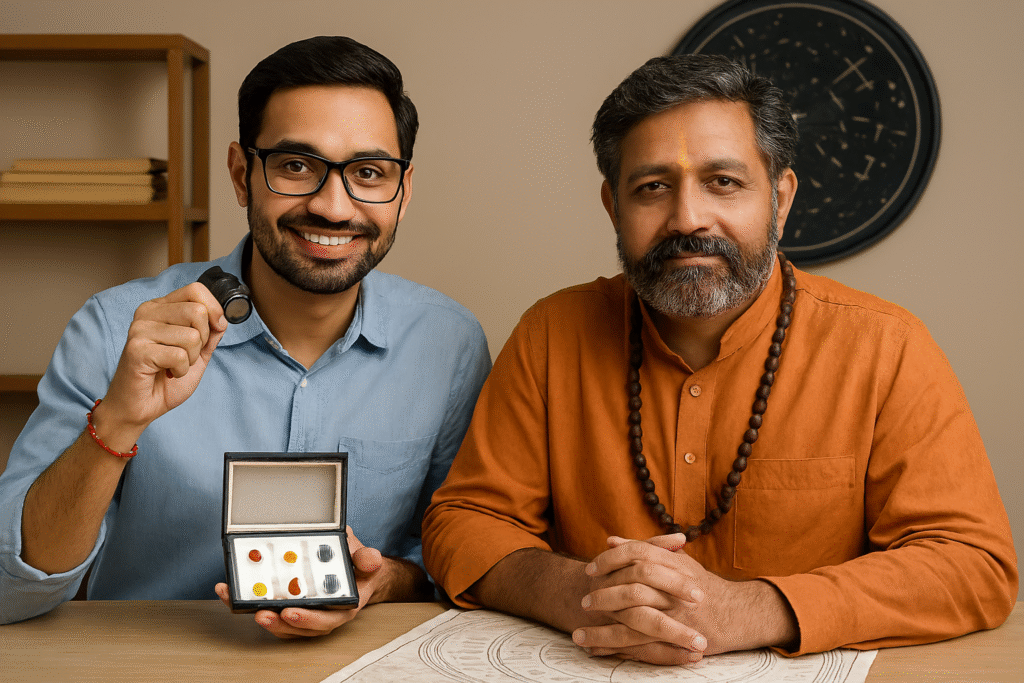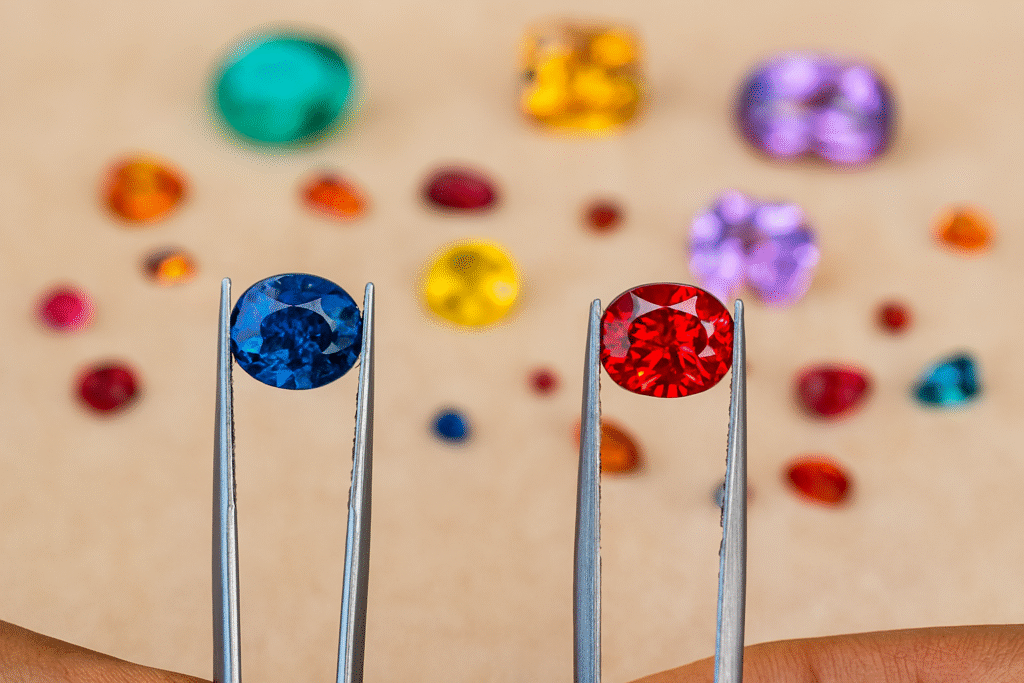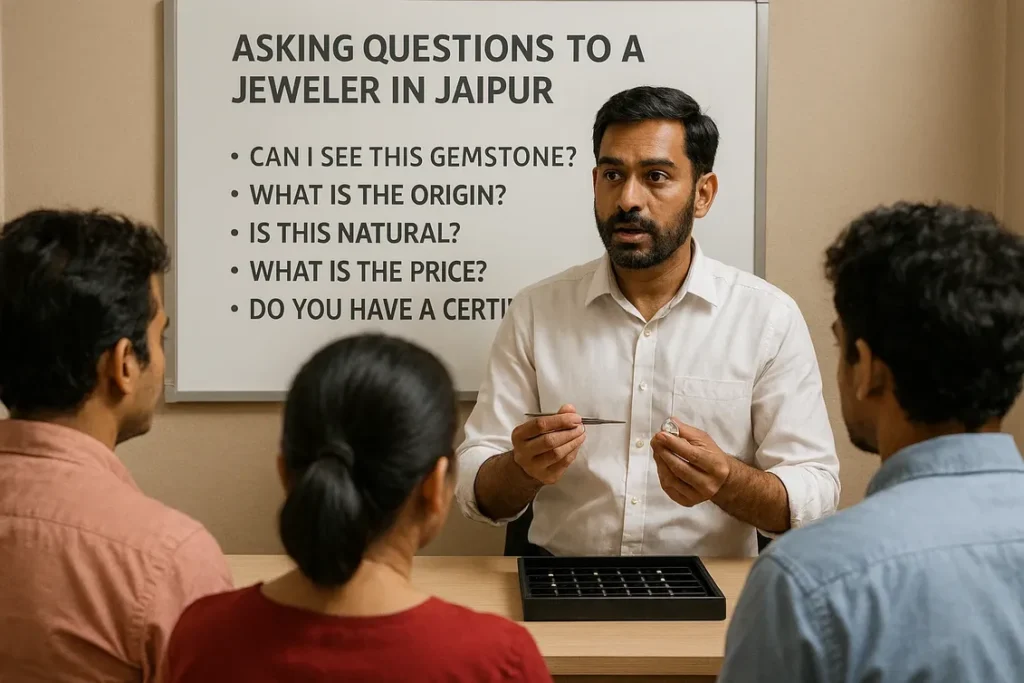Summary
Astrologers interpret your stars; gemologists interpret your stones. This article explains why astrologers aren’t gemologists and what that means for you.
Astrologers prescribe gemstones for planetary balance, while gemologists confirm whether those gems are natural, untreated, and valuable. By working with both, you ensure your remedy is genuine, powerful, and worth your investment.
Your astrologer and your gemologist perform very different but equally important tasks. Understanding why astrologers aren’t gemologists and what that means helps you avoid fake stones and poor advice.
Astrologers focus on the planets in your horoscope. Gemologists focus on the gem’s authenticity and quality. You need both for the right result.
Astrology Is About Planets and Timing
Astrologers read birth charts, study planetary dashas, and interpret transits. They recommend gemstones to strengthen or calm specific planetary energies.
For instance, a yellow sapphire might be prescribed to support Jupiter’s wisdom and fortune.
Learn more about how gemstones connect with planets at AstroVed’s Vedic Gemstone Guide. Also explore Understanding BIS Hallmark: What It Means for Your Jewellery.
Gemology Is About the Stone Itself
Gemology is scientific. It deals with gemstone origin, composition, and treatment detection. A professional gemologist checks every stone using microscopes and lab tests before certification.
For example, if your astrologer recommends a blue sapphire, your gemologist ensures it’s natural and untreated from Sri Lanka—not a synthetic copy.
For reliable testing, refer to the Gemological Institute of America (GIA).
To learn how to buy safely, read Gemstone Buying Tips for Beginners.
Why It’s Risky to Mix the Two
Some astrologers sell gems directly. That may sound convenient, but it often leads to conflicts of interest. Without gemological training, they might unknowingly sell synthetic or treated stones.
A client once purchased an “emerald” for ₹10,000. It turned out to be green glass worth ₹100. After replacing it with a certified Colombian emerald, his confidence and peace of mind returned.
Check gemstone authentication at IGI Gemstone Certification Services.
How to Make the Right Choice
When your astrologer prescribes a gemstone:
- Buy from a certified gemologist or lab
- Ask for an authenticity report
- Match clarity, weight, and origin to the astrologer’s recommendation
- Never buy based on color alone—appearance can deceive
Your astrologer understands your stars. Your gemologist understands your stones. Together, they help you achieve harmony and confidence.
For more advice, read Gold Buying Checklist for Malayalis.
FAQ: Why Astrologers Aren’t Gemologists and What That Means
1. Why can’t astrologers identify real gemstones?
Astrologers specialize in planetary analysis, not gem testing. Gem identification requires gemological instruments and training in mineral science.
2. Can my astrologer and gemologist work together?
Yes. Ideally, your astrologer prescribes the gemstone, and your gemologist verifies it. This teamwork ensures accurate planetary results.
3. Is it risky to buy gemstones directly from an astrologer?
It can be. Unless your astrologer is also a certified gemologist, you might receive a treated or synthetic gem. Always request lab certification.
4. Which gemstone labs are trusted internationally?
Top institutions include the Gemological Institute of America (GIA), International Gemological Institute (IGI), and Gubelin Laboratory.
5. What should I ask before buying a gemstone?
Ask for:
- Certification report number
- Gem’s treatment history
- Origin and clarity grade
- Return or replacement policy



